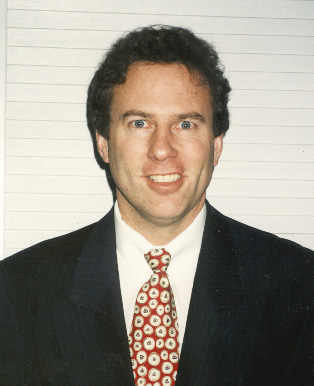MVPD+TV Change=OTT and The Third Perfect Storm
The smarter way to stay on top of the multichannel video marketplace. Sign up below.
You are now subscribed
Your newsletter sign-up was successful
During the past 70 years of television, broadcasters have been challenged by new forms of distribution in two distinct time periods: the cable era of the 60s and 70s, and the satellite era of the 80s and 90s.
These once-nascent distribution technologies, each one with one or two defining leaders using their legal strength to challenge the broadcasters, ended up dramatically changing the landscape of television.
Built upon that foundation, welcome to the dawn of a new television distribution era. This one is known as the Internet video era, or Over-The-Top (OTT), or as the government recently coined it, the Online Video Distribution (OVDs) era.
Recent research by The Carmel Group suggests that copyright challenges usher in change. In the past, when the all-important broadcasters had their copyrights and licenses challenged, first by newcomers in cable, and second by newcomers in satellite, they typically sued first and obtained their desired injunctions. The broadcasters then tended to see the light (i.e., that more distribution of broadcast TV is good), and they then worked with the government and the industry to achieve reform-based legislation that allows that new form of distribution to coexist…as long as there is control of distribution and the revenues are shared.
History seems to be repeating itself today, with broadcast television being challenged by Internet video distributors, and the Internet video challengers compelled to offer that must-have broadcast content. Challengers with what appears to be less legal staying power have drifted into this Internet video history. They include iCraveTV, which appeared to be claiming it was a passive carrier (but it didn’t seem to fit the copyright exemption); and FilmOn, apparently claiming its service was merely free-to-air (for which no copyright exemption exists); and Sky Angel, which seems to have claimed it was governed by the FCC (but the FCC states it doesn’t govern the Internet).
Meanwhile, another key Internet video challenger, ivi may be emerging as a defining leader with that important legal strength –ivi is claiming it is a cable system (where there is a clear copyright exemption). And beyond ivi is the yet-to-launched, and yet-to-be-sued, Bamboom, which may be legally claiming it is not rendering a public performance (even though it transmits the broadcasters’ signals).
The ivi situation may be an ideal case in which to make the observation of broadcasters suing, getting an injunction, and having it appealed to the higher court while proceeding on the merits.
The smarter way to stay on top of the multichannel video marketplace. Sign up below.
In the specific case of ivi, against which a preliminary injunction was lodged in February 2011, the Seattle-based company has appealed that injunction, and is waiting for a ruling from the U.S. second circuit court of appeals. At the same time, ivi and its founder/CEO, Todd Weaver, continue to press forward on the merits of their basic claim, i.e., ivi should be permitted to carry broadcast channels in the same way that cable providers do, because ivi meets the statutory description of a true “cable system,” and it pays the exact same copyright royalties that cable companies do. Interestingly, there is a copyright exemption for cable systems in Copyright Law, and all true cable companies (perhaps one day including ivi), make a biannual compulsory licensing royalty payment to the U.S. Copyright Office, making it a non-infringing act to retransmit FCC licensed broadcast stations to their subscribers.
Like cable and satellite before it, Internet video as a future form of television distribution is going to be decided, in some measure, by the federal courts. Based upon developments to date, OTT, OVD, and the Internet’s ability to compete with cable and satellite as a pay TV platform, may be largely decided by the ivi case. If history is a guide, the ivi case outcome may then encourage the industry’s stakeholders to join and push the government to reform copyright and compulsory licenses, possibly merging cable and satellite in with Internet video into a single copyright section and royalty rate.
Although probably inevitable, this process will take a long time. The government will not do much, if anything, to push the process along, especially in the beginning. Indeed, new challengers and court decisions in cases like ivi’s will do the pushing to the point where Congress, with Copyright Law; the FCC, with rules and regulations; and, to a lesser extent, the Copyright Office, with reporting and payment, will all step in to create new legislation that cements that necessary change.
OTT/OVD/Internet video has the legs, and these new services make a boatload of common sense, especially for consumers. Call this a forecast, if you will, but finding a place alongside cable and satellite is unavoidable, as long as these new Internet video players play by the same rules. These are the all-important rules that properly compensate each member of the entire content food chain. Or, to amend an overused adage: If these challengers follow (and pay) the money, that success is very nearly predictable.
Jimmy Schaeffler is chairman and CSO of Carmel-by-the-Sea-based consultancy The Carmel Group (www.carmelgroup.com).
Jimmy Schaeffler is chairman and CSO of The Carmel Group, a nearly three-decades-old west coast-based telecom and entertainment consultancy founded in 1995.

